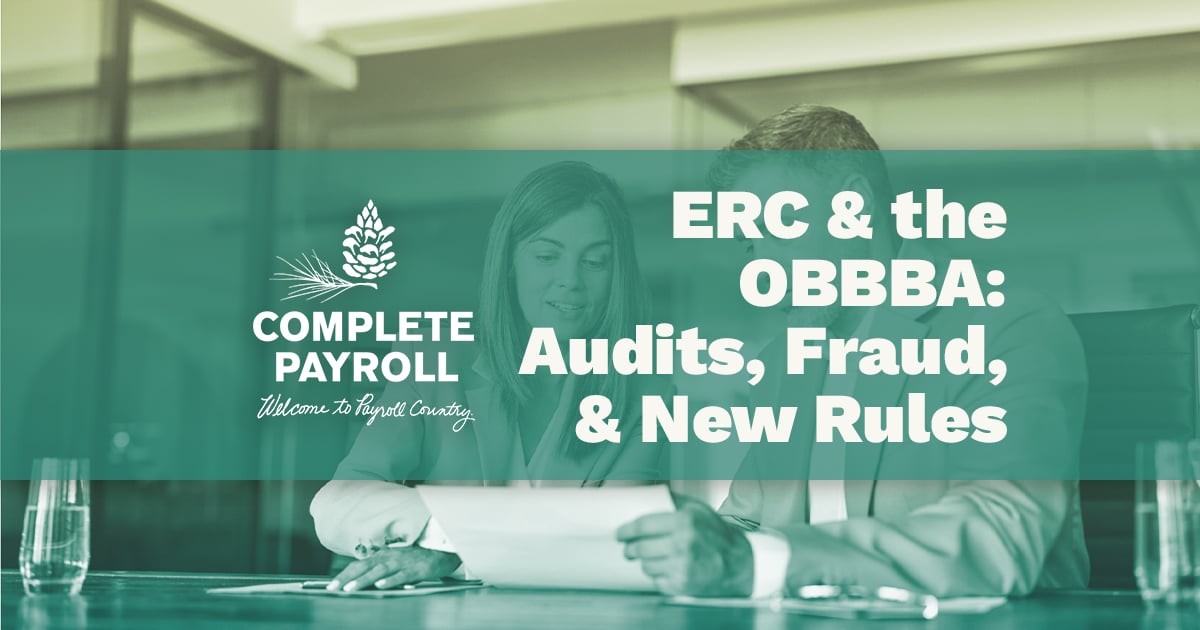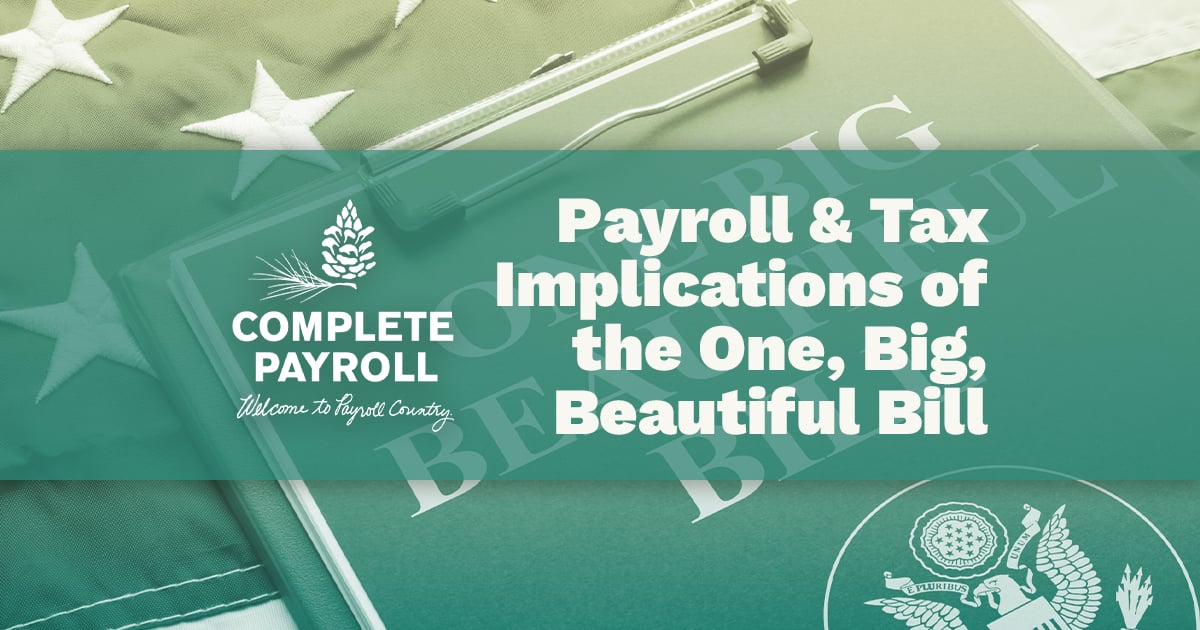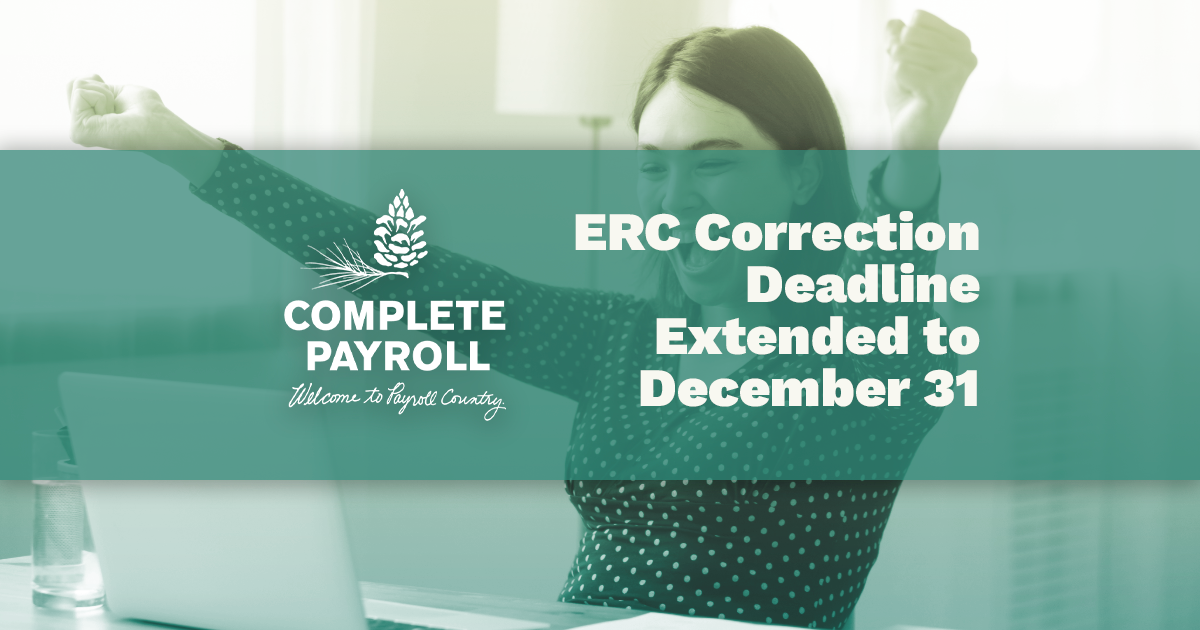ERC Disallowance Letters: What They Mean And How To Appeal
Written by Rick Fish, Jr., C.P.P.
.png?width=1200&height=400&name=ERC%20Disallowance%20Letters%20(1).png)
It’s no secret that COVID-19 greatly affected businesses across the country. And as a result of this effect, the Employee Retention Credit (ERC) was established to help businesses affected by the pandemic. The ERC was a tax credit aimed to help certain eligible businesses recoup some of the costs of maintaining their employees on payroll throughout the pandemic, despite operations being affected.
The ERC was incredibly helpful for businesses; however, unfortunately, many businesses applied for this tax credit that were either unknowingly ineligible or were victims of one of the many scams regarding the Employee Retention Credit.
While the ability to apply for the ERC is currently suspended indefinitely, the Internal Revenue Service (IRS) is still processing old claims and cracking down on the fraud surrounding ERC claims. Businesses that filed ineligible claims are now subject to receiving an ERC disallowance letter.
What Are ERC Disallowance Letters?
In 2020, the Coronavirus Aid, Relief, and Economic Security Act (CARES Act) established the Employee Retention Credit to help encourage employers to retain employees on their payroll despite their business being affected by COVID-19. While this relief act was a huge aid to businesses, many businesses applied for this credit and received it despite ineligibility.
As a result of this, the IRS announced an ongoing moratorium in September 2023 on all new ERC claims. In addition, they have taken a more skeptical stance and announced in June that it would review and deny thousands of ineligible ERC claims. Since then, countless ERC claims have been reviewed by the IRS, and between 10% and 20% have been found to be erroneous and high-risk, subjecting them to ERC disallowance letters.
If you have received an IRS Letter 105C in the mail, then that is the official and legal notice from the IRS that your ERC claim has been disallowed and that you are not eligible for the tax credit or refund that you applied for. However, if you feel that you received one of these denial letters wrongfully, you can start an appeal.
Common Issues with ERC Disallowance Letters
Lately, many businesses across the country have been receiving the IRS Letter 105C and have been noticing some issues, such as inaccuracies and discrepancies within them. Due to the lack of information in certain Employee Retention Credit disallowance letters, many businesses have not been aware of their rights or had enough information to appeal the denial decision.
Some of the main issues with the ERC disallowance letters are:
- Inaccurate or inapplicable bases for disallowing the claim.
- Insufficient notice of administrative appeal rights.
- Lacking or missing notice of administrative appeals rights.
Steps to Mitigate Inaccuracies
The first thing to do if you receive an ERC disallowance letter is to review it. Employee Retention Credit disallowance letters often have information on your claim being denied along with a deadline to begin the ERC appeal process if you believe your claim was wrongfully denied.
Here are four steps to mitigate and correct inaccuracies for your ERC letter:
- Review the disallowance letter for accuracy.
- Gather all relevant documentation to support your ERC claim.
- Contact the IRS employee listed on the letter to address inaccuracies.
- If necessary, request to speak to a supervisor to resolve the issue.
Preserving the Right to Appeal
All taxpayers with denied claims have the right to make an appeal or to file litigation if they feel like their ERC claim denial was inaccurate. IRS decisions, including penalties, can be appealed under the Taxpayer Bill of Rights, which grants taxpayers a fair and impartial administrative appeal process. Taxpayers have the right to receive a written response regarding the IRS Independent Office of Appeals’ (IOA) decision and usually have the right to take their cases to court.
The Independent Office of Appeals is an independent division from the IRS that determines ERC disallowance and therefore serves to handle the ERC appeal process for ERC claim denials in a fair and impartial manner, and typically without litigation.
If you wish to begin the ERC appeal process, you can fill out a written protest to the office provided in the ERC disallowance letter and send it within the specific timeframe on your letter, which is typically 30 days.
When you file a written protest, make sure to include all applicable business information that could impact the IOA’s decision—such as all relevant documents, information, and explanations to support your ERC claim. If you feel like you need an appeal extension due to a misunderstanding, then you can contact the IRS and request an extension by proving to them that you need more time to gather the correct information and documentation.
Filing a Written Protest
There are two different types of protests you can file: a small case request or a formal written request. Let’s take a deeper look at them to help determine which of them your business will need to file.
A Small Case Request
A small case request is necessary when the entire amount of additional tax, penalties, and interest for each tax period is $25,000 or less from an examination (audit). To make a small claims request, follow the instructions in the letter of proposed tax adjustments you receive. This usually entails the business owner or taxpayer sending in a written protest, generally within 30 days, requesting an appeal and detailing the reasons it does not agree with and the reasons behind the disagreement.
Formal Written Request
If the proposed change to the total amount of tax and penalties for any tax period exceeds $25,000, then a formal written protest is required. In addition, a formal written request is required for exempt organization cases, partnerships, and S corporations, regardless of the dollar amount.
If you are filing a formal protest, you will need to follow the instructions in the letter you received. This usually includes a statement that you want to appeal the changes proposed by the IRS as well as your name, address, phone number, and a list of all disputed issues and reasons why you disagree with each issue.
For more information on both a small case request and a formal written request, refer to IRS Publication 5 to help you determine which type of protest to file to ensure ERC compliance.
Conclusion
If you have received one of the Employee Retention Credit disallowance letters, then your businesses must make sure that they follow the proper steps in a timely manner to address their ERC claim denial.
These steps include reviewing your disallowance letter for accuracy, gathering relevant information and documentation to support your ERC claim, contacting the IRS employee or supervisor listed on the letter to address inaccuracies, and beginning the appeal process.
All taxpayers have the right to appeal the IRS’s decision regarding a claim, and they can either use a small case request or a formal written request—depending on which one their case qualifies for. If a business chooses to begin the ERC appeal process, then they should ensure that they act within the timeframe on their letter to ensure ERC compliance with the IRS’s regulations.
It’s important that businesses stay informed on all tax and ERC compliance. Sign up for our newsletter to ensure you stay up to date on the latest payroll and tax compliance updates!















 Get Instant Blog Notifications
Get Instant Blog Notifications


